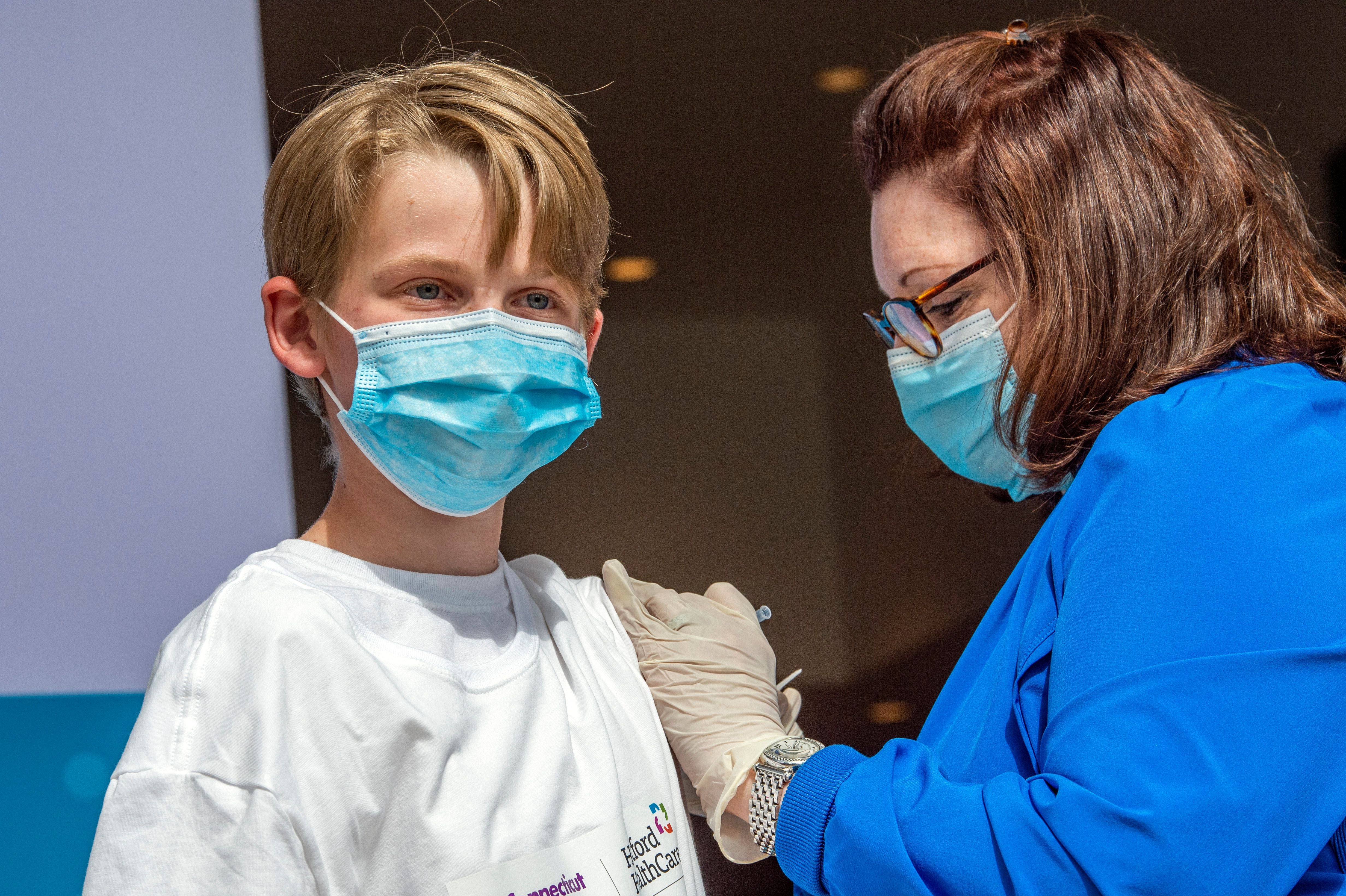The Independent's journalism is supported by our readers. When you purchase through links on our site, we may earn commission.
Giving 12-year-olds the vaccine is the right thing to do – and should come down to the child, not the parent
I’d have no qualms about my nine-year-old daughter having the vaccine, if she wanted it, even now


Children aged 12 to 15 will begin being vaccinated against Covid-19 next week in a bid to stop school closures and end the pandemic – and it’s about time, too.
Still, news that the UK’s four chief medical officers have recommended that everyone under 16 should be offered the chance to be vaccinated with a single dose of the Pfizer jab will no doubt have been met with relief and celebration in some places, sheer horror in others. And much of the consternation (particularly on social media) seems centred around rumours that when kids are vaccinated against Covid, they might not need parental consent.
In practice, what this would mean is that children between that age bracket in England could go to school like any normal day and come home jabbed – even if their parents were against them having the vaccine, or hadn’t had it themselves.
But what certain people don’t seem to realise is that this is already the case – nothing has changed. In England, NHS guidance on immunisation in schools states that 16 and 17-year-olds can already consent to their own immunisations, and so can young people who understand fully what is involved in the proposed procedure; as long as they are given information leaflets to help them decide. What’s more, a parent cannot override the decision of a child who’s been judged as competent to consent – or to refuse – treatment.
In healthcare settings, this is known as the “Gilick competency test” – which helps to assess whether a child has the maturity to make their own decisions, and to understand the implications of those decisions. There is no lower age marker set. Some children under the age of 15 will be deemed “Gilick competent”, some won’t. The onus lies is on deciphering which kids are which.
And, much like adults, the results are likely to vary; not because of the parent – but because of the individual child. Just like those who care for them, some children are going to be grown up and mature enough to have researched the success of vaccinations, some won’t be interested. Some will feel quietly confident in making their own decisions; others so strong-willed that they’ll be determined to have their own say, no matter what; many will be nervous and keen for guidance or a steer.
Parents or carers know their children best – so chances are, you know which camp your child would likely fall into. If you’re a parent who’s vaccine-hesitant, I can understand why you might feel upset – even angry – about such a scenario. But what I really feel is that we should trust our kids; many of whom are mature, intelligent and information-savvy well before the age of 12.
Personally, I’d have no qualms about my nine-year-old daughter having the vaccine, if she wanted it, even now. If she’s mature enough to ask me questions about sex, relationships and puberty (which she does, frequently) – and to sit and listen to the answers, then she’s mature enough to think about what she wants to do with her body when it comes to getting vaccinated, too.
And the idea of trusting our kids with their bodies is nothing new – most of us are trying to teach the idea of bodily autonomy all the time; from exploring issues of consent, to the PANTS acronymn at primary schools: the NSPCC campaign aims to teach children “the underwear rule” and to remind them that “privates are private” and – crucially – “your body belongs to you”.
I’ve even gone so far as to tell my children they absolutely do not need to kiss their elderly relatives at Christmas-time – it’s not wise, now, anyway, thanks to Covid, but there’s a wider issue: the issue of consent. We can’t very well teach our children that they have the right to say “no” to unwanted physical contact one minute, and then demand they kiss an aged aunt the next. The messaging needs to be strong and simple.
And if we are teaching our kids that their bodies (rightly) belong to them, then that should go for whatever it is they decide about the vaccine, too.
Bookmark popover
Removed from bookmarks